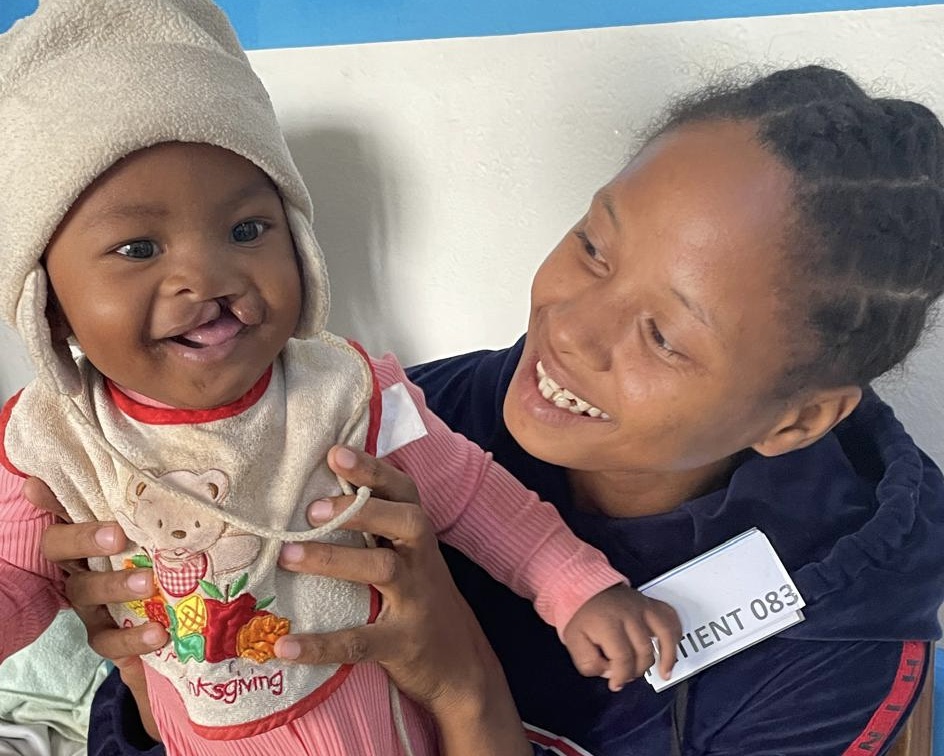
This spring, Operation Smile UAE, with support from Mubadala, funded international surgical programs in Madagascar and Honduras, providing free corrective surgery to 200 patients for their cleft conditions.
In April, five Operation Smile UAE medical volunteers including, Philipp an anaesthesiologist, Jihad, Ella, Amal and Francesca, all nurses, along with OSUAE Executive Director, Morag, traveled to Antsirabe, Madagascar.
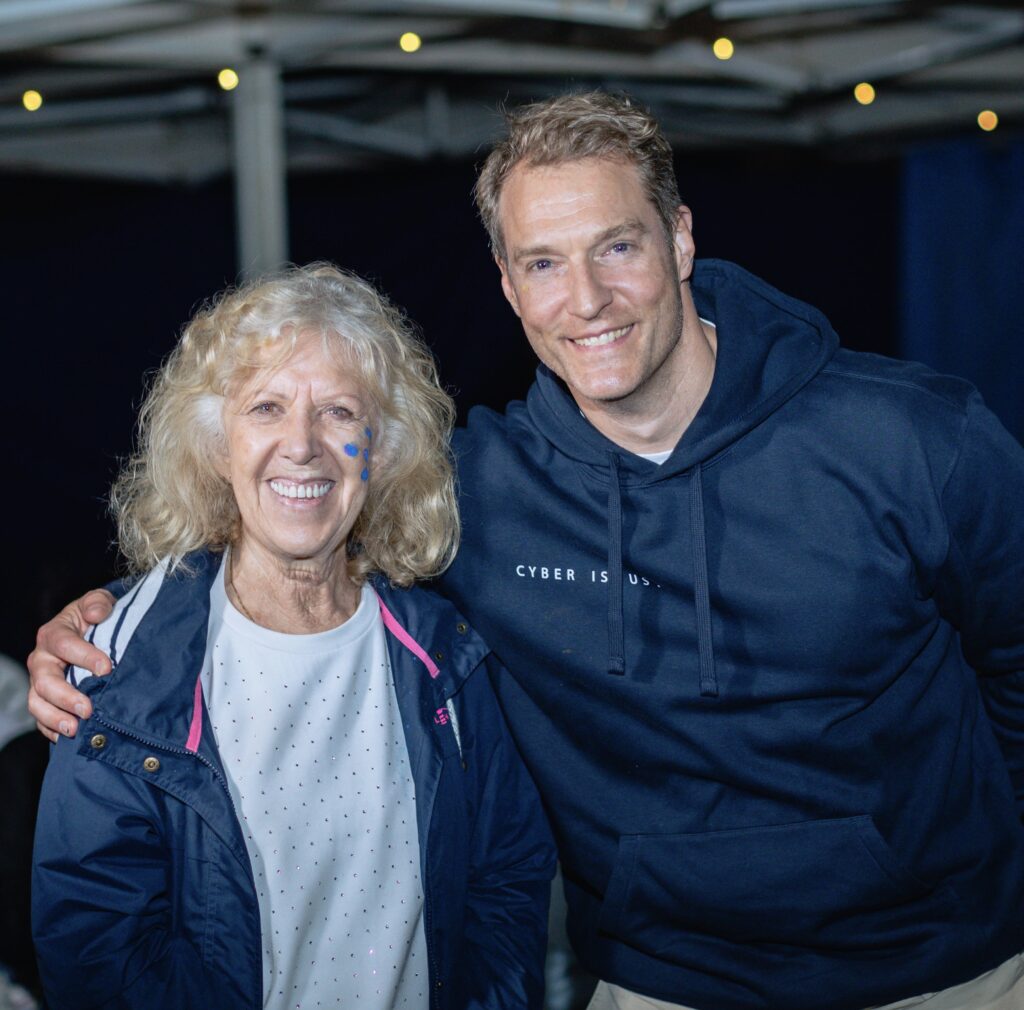
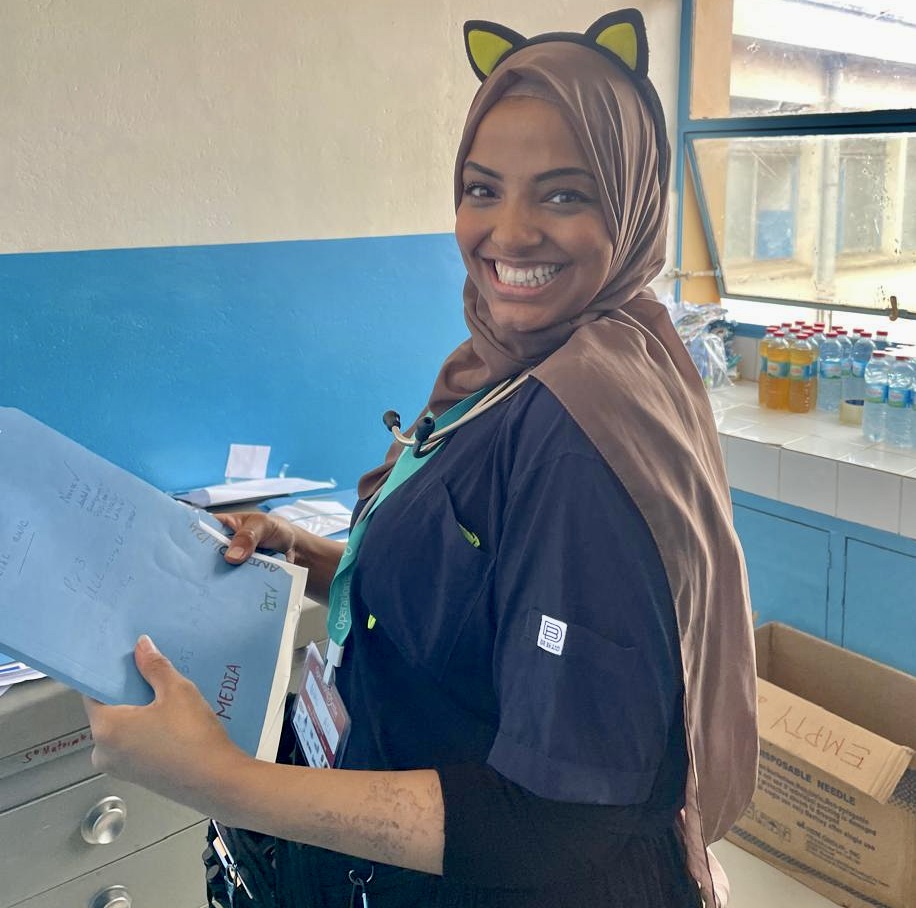

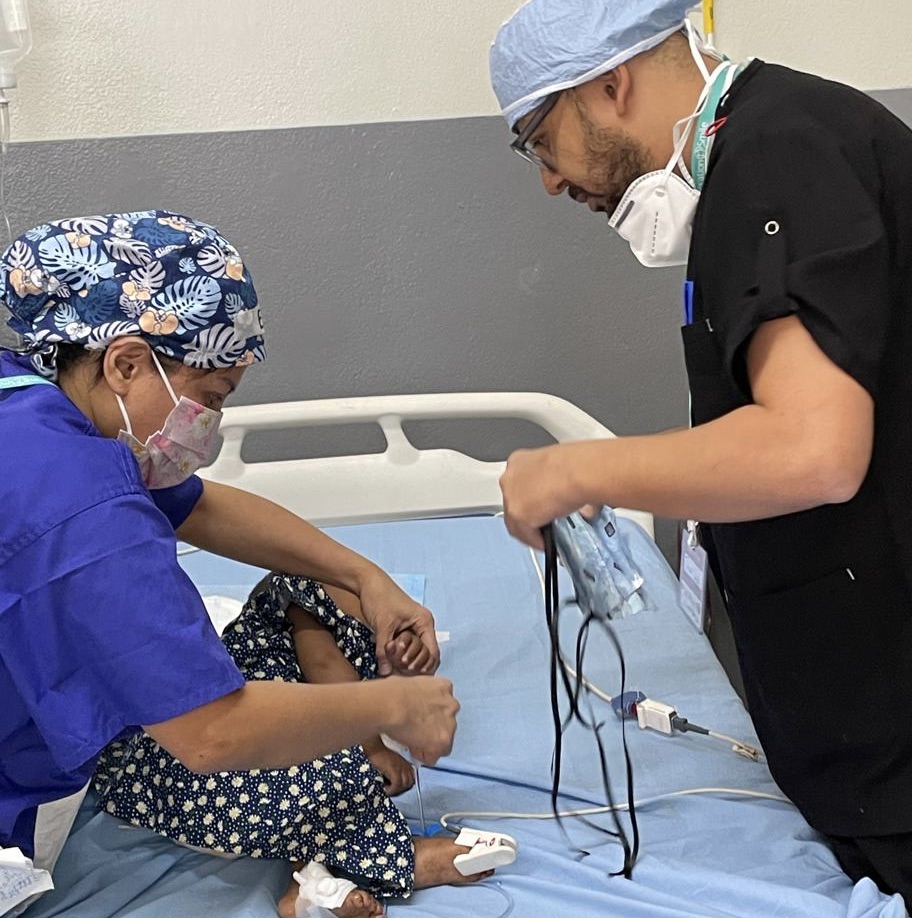
Ella and Jihad. (Photo credit: Operation Smile)
The team from the Emirates also included non-medical volunteers from Mubadala who helped with the registration process.
The 10 day program, organized by Operation Smile in Madagascar, included surgeries and comprehensive care sessions. Patients’ families received education on healthy eating and how to safely bathe their babies.
Medical volunteers from 11 countries, were able to screen 200 patients and provided 117 patients with free and safe surgery for their cleft condition.

OSUAE provided an adorable, branded teddy bear for each patient who received surgery. The bears, donated by an OSUAE supporter, were given to patients to help comfort them on their journey to their new smile.
In May, Mubadala also supported a surgical program in Honduras.
Executive Director, Morag, accompanied non-medical volunteers from Mubadala who traveled to help during the surgical program in San Pedro Sula.
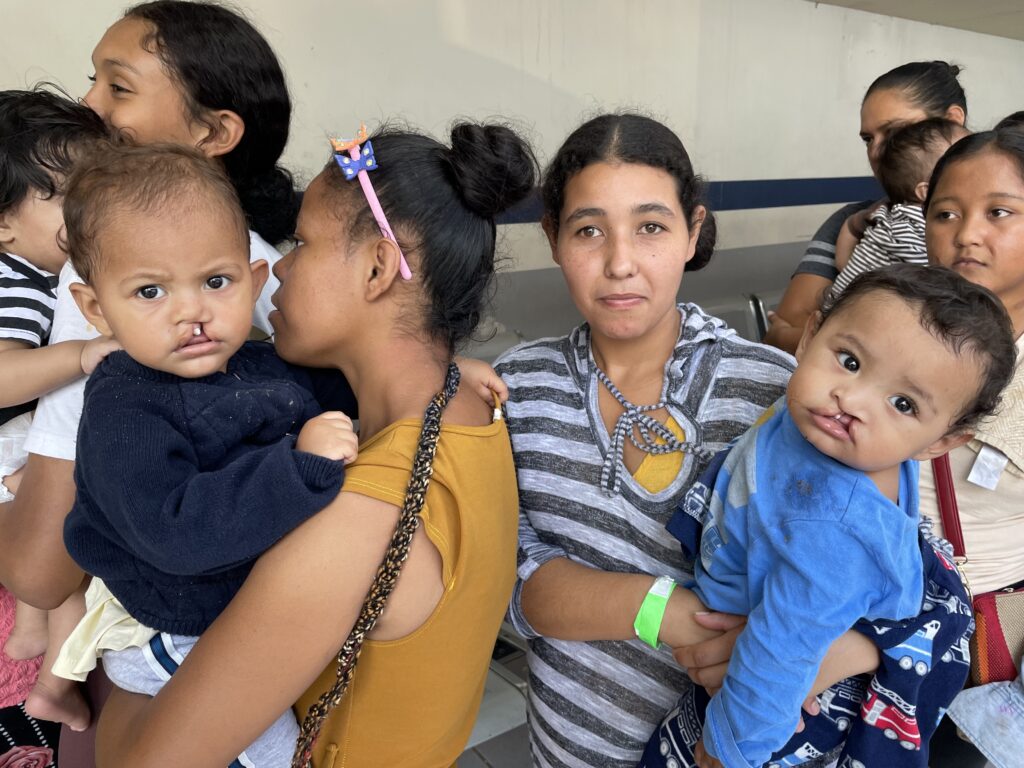
During the week long program, 127 patients were screened for their cleft conditions and 80 received surgery.
All 80 patients also received one of our adorable OSUAE teddy bears.
Operation Smile Honduras, in addition to providing surgery and comprehensive care to patients born with cleft conditions, also provided dental care for residents of two local orphanages.

While in San Pedro Sula, Morag and the volunteer team from Mubadala, took time to visit the orphanages, and donated much needed items including school supplies and food to the children.
Thank you to Mubadala, our OSUAE medical volunteers, and members of the UAE community, for providing the funds and support for these programs.
Because of your generosity Operation Smile were able to provide care to hundreds of patients with cleft conditions.
